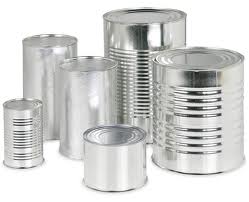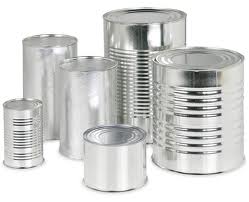March 11, 2015

The Food and Drug Administration announced Friday that it was denying a petition to ban BPA from all food and drink containers, saying the science does not show an immediate cause for such action.
The action comes as a response to a petition filed in 2008 by the Natural Resources Defense Council claiming that the chemical poses a serious threat to human health. The agency did not close the door on future regulation.
"This is not a final safety determination on BPA," FDA spokesman Douglas Karas said. "There is a commitment to doing a thorough evaluation of the risk of BPA."
Scientists still are working to determine what effects BPA, which mimics estrogen in the body, has on human health once it's ingested. They know that it is metabolized quickly and that it has been shown to have negative effects in mice, including developmental and reproductive abnormalities, precancerous changes in the prostate and breast and other health problems.

Food cans
In a separate release, the Can Manufacturers Institute says, "The announcement by the FDA's panel reviewing the science surrounding Bisphenol A reinforces the longstanding consensus that current regulations covering BPA protect U.S. consumers.
"By any measure, the FDA panel review was a comprehensive and exhaustive review of the existing, sound science and we believe they came to the proper, independent conclusion, devoid of the emotional rhetoric that has surrounded this issue for far too long. After studying more than 43 foundational studies, the proper conclusion is that the current regulatory scheme is more than adequate to protect consumers.
"Canned food and the linings contained within them protect consumers from contamination and bacteria that would endanger the food supply. Can manufacturers care about consumer health and utilize every measure to ensure that the can is of the highest quality that consumers can trust. We take the proper measures to provide packaging materials to ensure a safe food supply. We look forward to continuing our tradition of fulfilling our important mission of providing consumers with nutritious and refreshing options."
Sarah Janssen, senior scientist for the NRDC, criticized the federal agency for failing to ban BPA. "BPA is a toxic chemical that has no place in our food supply," she said. "The agency has failed to protect our health and safety -- in the face of scientific studies that continue to raise disturbing questions about the long-term effects of BPA exposures, especially in fetuses, babies and young children."
The North American Metal Packaging Alliance Inc. praised the FDA decision as a "welcome development, demonstrating the seriousness of the agency's commitment to doing its job of protecting public health."
"Instead of bowing to pressure from activist groups, the agency is relying on science to set public health policy. FDA's decision to pursue an updated risk assessment is especially important given that preliminary results from ongoing government funded research support the safety of BPA in food contact uses," said John Rost, the alliance's chairman.
BPA, a synthetic estrogen developed more than 70 years ago, came into wide use in the 1960s and 1970s to make polycarbonate plastic for such things as baby bottles. It is also used as an epoxy resin to line metal cans. BPA can be found in cell phones, dental sealants, eyeglasses, as a coating for cash register receipts and hundreds of other household items.
The agency's move was criticized by Environmental Working Group, which has lobbied to remove BPA from food and food containers, particularly baby bottles and infant formula.
Ten states, including Wisconsin, have various bans on the use of BPA in baby bottles, sippy cups and other tableware intended for use by young children. In 2008, Canadian health officials declared that BPA was toxic and banned its use in baby bottles.
In recent years, consumer demand led to baby bottle manufacturers discontinuing use of the chemical. Earlier this year, Campbell's Soup joined companies like General Foods and Trader Joe's in promising to switch to an alternative to BPA.
About the Author(s)
You May Also Like


